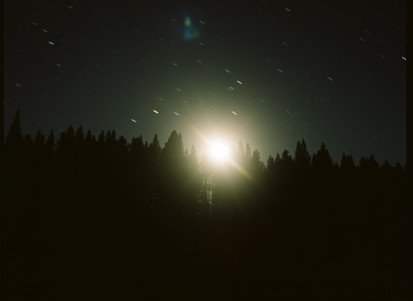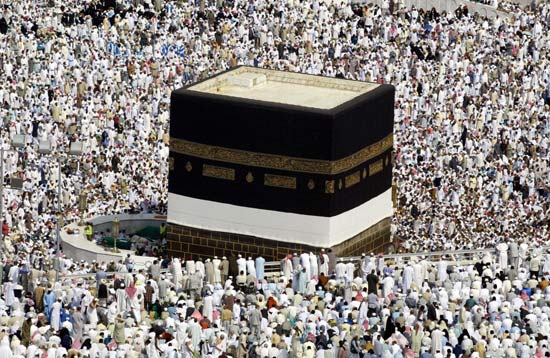Salaah
- Image credit: Wikipedia Ramadan ended. (May Allah accept all our prayer, fasting, du’a, and good deeds during this blessed month — ameen!) How should we, as Muslims, act now? We graduated from the school of Ramadan; can life simply return to normal? Our scholars mention a few points about this: Allah says, in surah Baqarah, that Ramadan was prescribed on us in the hope that we gain taqwa. Did we achieve that goal of the school of Ramadan?
Pray as if This is your Last Prayer
You often hear the khatheeb or imam, right before the salah starts, saying “pray as if this is your last prayer.” Sure, but what does it mean, and how do we do it? As one of the righteous people of the past said: Pray as if Jannah is on your right side, Hellfire is on your left side, the siraat (bridge over Hellfire) is under you, the angel of death is behind you (waiting to take your soul any minute), your sins are above you (waiting to crush and destroy you), and this is the last deed, the one that decides if you go to Jannah or Jahannam forever.New Project Unveiled: Salah Support
Bismillah. Alhamdulillah, we’ve been working in the background for a while to launch a new project. Jazakumullahu khayran to everybody who helped out, may Allah keep giving you reward for it insha’Allah long after your bones are dust–allahumma ameen! First, check yourself, and fill out the poll below: [poll id=”3″] If you haven’t guessed, our new project is: Salah Support, a forum where you can find resources on salah–everything from videos on how to pray, to ebooks on khushoo’, to creative alarms for Qiaaym-ul-Layl.3 Shields of Protection From Supernatural Forces
This is post #22 in our series on Tafseer of Juz ‘Amma (click the link to see all posts in this series).
 The protection of Allah is easily earned and very, very powerful.
The protection of Allah is easily earned and very, very powerful.Muslims love talking about Jinns and black magic. Yet, when it comes to inoculating themselves from supernatural forces, Muslims are often either ignorantly doing most of what they need to do, or proverbially standing on the interstate highway, woefully oblivious of thousands of cars speeding by at near-miss distances. And many of us, or people we know, personally do get hit.
Yet even the newest Muslim is often quickly equipped with powerful shields of protection against these forces. What are they?
Say: O You Kafiroon …
Note: This is post #20 in our series on Tafseer of Juz ‘Amma (click the link to see all posts in this series).
In Surah Kafiroon, Allah says:
قُلْ يَا أَيُّهَا الْكَافِرُونَ
لَا أَعْبُدُ مَا تَعْبُدُونَ
وَلَا أَنتُمْ عَابِدُونَ مَا أَعْبُدُ
وَلَا أَنَا عَابِدٌ مَّا عَبَدتُّمْ
وَلَا أَنتُمْ عَابِدُونَ مَا أَعْبُدُ
لَكُمْ دِينُكُمْ وَلِيَ دِينِ
Translation: Say, “O disbelievers, I do not worship what you worship. Nor are you worshippers of what I worship. Nor will I be a worshipper of what you worship. Nor will you be worshippers of what I worship. For you is your religion, and for me is my religion.” [Surah Kafiroon]
The mushrikeen (polytheists) of Mecca tried many, many different techniques to get the Prophet (salallahu alayhi wa sallam) to stop spreading Islam.
Before this ayah was revealed, they decided to make a pact with him. They said, “Look, how about this–you worship our gods for one year, and we’ll worship your God for one year.” And to sweeten the deal: “And, we’ll go first.”
And they applied the Broken Record technique. Whenever the Prophet (salallahu alayhi wa sallam) would try to speak to them about Islam, they would only repeat this.
And he, salallahu alayhi wa sallam, refused.
Those of you who are wondering why–although it seems on the surface like a fair trade, it’s not. Allah does not forgive shirk, worshipping other than him; not even a single sujood, or a single du’a, none of it is acceptable.
So clearly, this is not a contract the Messenger of Allah could engage with. So he refused.
And he refused.
And he refused.
Then, the Mushrikeen said, “ok, how about this–just speak highly of our gods, and we’ll do the same for you.” A smaller compromise.
And whenever people approached them, they would say, “Well, we’re trying to compromise (like we’re the good ones in this deal–even though we kill our daughters and murder on whims and …), but he’s not agreeing.”
So the Prophet (salallahu alayhi wa sallam) went to the ka’bah.

Mushrikeen were there. And in front of everybody he said:
Those Who Show Off in Their Salah
Note: This is post #19 in our series on Tafseer of Juz ‘Amma (click the link to see all posts in this series). In Surah Ma’oon, Allah says: فَوَيْلٌ لِّلْمُصَلِّينَ الَّذِينَ هُمْ عَن صَلَاتِهِمْ سَاهُونَ الَّذِينَ هُمْ يُرَاءُونَ وَيَمْنَعُونَ الْمَاعُونَ Translation: So woe to those who pray; those who are heedless of their prayer, those who make show [of their deeds]; And withhold [simple] assistance (al-ma’oon). [Surah Ma’oon, verses 4-7]Ask the Readers: Questions about Salah?
Edit: Jazakumullahu khayran to everybody who provided feedback. It seems like there’s a lot of demand for this kind of thing. Insha’Allah we’ll see more posts like this in the future. Bismillah. Salah. We cannot emphasize the importance of salah–the dividing line of Islam and Kufr. The first thing asked about on the Day of Judgment. The last thing the Messenger of Allah mentioned before he passed away. Maybe you’ve been Muslim a day.What is a Mursal Hadith?
In the sciences of hadith, there’s something called a “mursal” hadith. What exactly is a mursal hadith? What is it’s status? What are the fiqh rulings on mursal ahadith? And why does it matter? (Ok, for the answer to the last question, read and learn about the science of hadith. In a sentence: Scholars have devised an extremely rigorous process to determine which hadith are authentic, and which are not. You wouldn’t want to spend your whole life following a “hadith,” only to find out it really wasn’t legit, do you?Creative Qiyaam-ul-Layl Alarms
Bismillah. We all know that we should pray tahajjud, aka qiyaam-ul-layl. It’s well established in the deen that this is a very, very rewarding thing to do (but it’s not fard, so don’t sweat it if you’re not doing it). Some motivational factors for this include: The Prophet (صلى الله عليه و سلم) used to pray Qiyaam-ul-Layl until his legs swelled. When asked why–since Allah has forgiven all his past and future sins, he said: Should I not be a grateful slave?The Reasons Behind Seasons
Bismillah. Why did Allah (سبحانه وتعالى) create seasons? All of this–snow, leaves changing, hot summer days and freezing winter nights. In some countries–like Canada, and the US–you have places where Isha time starts around 11pm, or 12am (midnight), and Fajr starts arond 2-3am! You also have days where Isha starts at 6pm, and Fajr starts around 7am. What can we learn from this? The Prophet (صلى الله عليه و سلم) gives this away when he narrates: “Allah (سبحانه وتعالى) made the night short so you can pray, and the day short so you can fast.